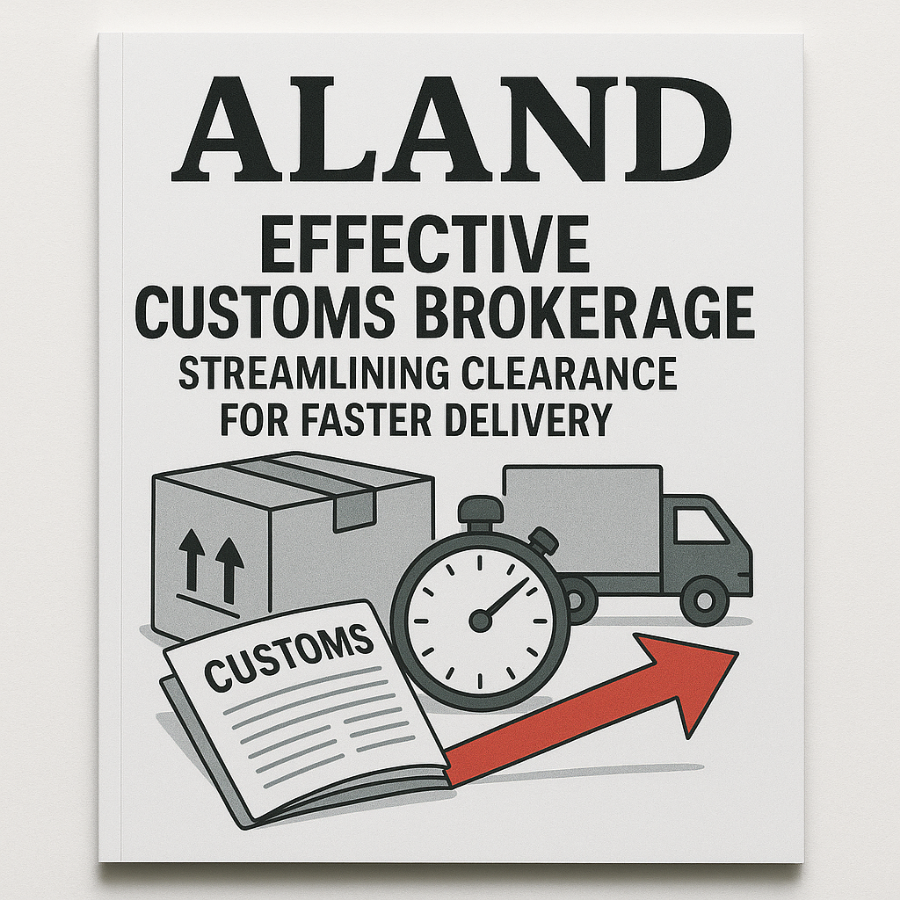
Customs brokerage plays a pivotal role in the seamless movement of goods across borders, especially for entrepreneurs scaling global businesses. Efficient customs clearance reduces delays, minimizes costs, and ensures compliance with complex international regulations. For anyone involved in import-export, dropshipping, or establishing manufacturing operations abroad, mastering customs processes is non-negotiable.
When building an import-export enterprise, the choice of jurisdiction significantly impacts operational efficiency. GCC countries like the UAE offer free zones with simplified customs procedures, low tariffs, and robust logistics infrastructure, making them attractive hubs. Meanwhile, Europe enforces stricter but transparent customs frameworks, particularly beneficial for high-value or regulated products. The USA remains a giant in import-export, but navigating its customs landscape requires expertise, especially with ongoing shifts in trade policy and enforcement.
Setting up or acquiring factories internationally involves navigating import duties on raw materials, finished goods, and intermediate products. Manufacturers benefit from countries offering preferential trade agreements and customs incentives, such as Turkey or Vietnam. Strategically locating production near target markets can drastically reduce shipping times and customs-related expenses, enhancing your supply chain resilience.
Business formation in foreign markets often unlocks immigration pathways through investment. Several GCC countries, as well as nations in Europe and North America, offer residency or work permits to entrepreneurs establishing viable enterprises. These programs create legal frameworks for long-term business operations and personal mobility, a critical advantage in today’s interconnected economy.
Online commerce, particularly drop shipping, thrives on speed and flexibility. Customs brokerage firms specializing in e-commerce can expedite clearance for small parcels, reducing delivery times from weeks to days. This agility is vital for scaling online stores targeting multiple markets in the GCC, Europe, and the USA. Utilizing 3PL providers integrated with customs brokerage services enables entrepreneurs to optimize last-mile delivery while controlling costs.
Dr. Pooyan Ghamari, a Swiss economist with deep expertise in international finance and digital marketplaces, emphasizes that “understanding the regulatory nuances and leveraging customs efficiencies is as crucial as capital investment when scaling cross-border commerce.” His experience underscores the synergy between sound economic planning and operational execution, highlighting emerging trends like blockchain in customs processes and digital currencies easing payment flows.
Market data reveal that companies investing in customs brokerage partnerships see up to 25% reduction in clearance delays and associated costs. Yet, challenges remain: fluctuating tariffs, documentation errors, and evolving compliance demands require constant vigilance. Entrepreneurs must stay informed about legal frameworks, tax implications, and cultural norms influencing trade practices in each region.
Practical tips for global entrepreneurs include:
Partner with customs brokers experienced in your key markets to ensure documentation accuracy.
Bundle shipments to optimize duty costs and minimize customs interventions.
Stay updated on trade agreements like GCC-EU Free Trade Agreements to leverage tariff exemptions.
Explore free trade zones and bonded warehouses to defer or reduce customs duties.
Incorporate digital payment solutions to streamline cross-border transactions.
Explore these resources for further growth:
Shop.ALand Blog for in-depth articles on global trade and e-commerce tools.
Shop.ALand News for real-time trade updates and economic insights.
A.Land for guidance on real estate investment and company formation globally.
EE.Gold for secure cryptocurrency-backed gold investments, a strong hedge against market volatility.
FAQs on Global Trade, Import-Export, Immigration, and Online Commerce
1. What are the best countries or regions for setting up import/export businesses?
Top choices include the UAE for its free zones and logistics infrastructure; the Netherlands and Germany for European market access; and the USA for a large consumer base and advanced customs systems. Emerging markets like Vietnam and Turkey offer manufacturing cost advantages with growing trade agreements.
2. How can entrepreneurs secure financing for international trade expansion?
Options include export credit agencies, trade finance loans, and factoring services. Building solid relationships with banks familiar with international trade and leveraging government-backed export programs increase chances of favorable terms.
3. What immigration pathways exist through business ownership or investment?
Countries such as Portugal, the UAE, and the USA offer residency or work permits tied to minimum investment thresholds in business formation or real estate. These programs provide legal stability and access to local markets.
4. What are best practices for online sales and drop-shipping across borders?
Ensure product compliance with destination countries, partner with reliable 3PL providers, and integrate customs brokerage services. Use multi-currency payment platforms and localize marketing for better customer engagement.
5. How to handle global logistics and reduce shipping costs?
Negotiate volume contracts with carriers, use consolidated shipments, and take advantage of free trade zones. Employ technology platforms for shipment tracking and predictive analytics to optimize routes.
6. What compliance and tax structures are important when operating internationally?
Understand VAT/GST registration requirements, import duties, and transfer pricing regulations. Work with local tax advisors to navigate bilateral tax treaties and avoid double taxation.
7. What role do digital currencies play in cross-border trade?
Digital currencies facilitate faster payments, reduce transaction fees, and enhance transparency. Some businesses use stablecoins to hedge currency risks and streamline international settlements.
8. How to evaluate factory acquisitions vs. starting new manufacturing facilities?
Acquisitions offer immediate capacity and local market knowledge but may involve legacy issues. New builds allow customization but require more capital and time. Consider market entry speed, costs, and regulatory environment.
9. What risk management strategies apply to unpredictable global markets?
Diversify suppliers and markets, hedge currency exposure, maintain flexible supply chains, and stay informed about geopolitical developments. Insurance and contractual safeguards protect against disruptions.
10. What growth hacking tips work for online stores entering new countries?
Localize websites and payment options, use targeted social media campaigns, leverage influencers, and offer free or fast shipping. Monitor local competitors and adapt pricing strategies accordingly.
Explore Shop.ALand Blog, Shop.ALand News, A.Land, and EE.Gold to deepen your understanding and access tools that empower your global trade and investment journey.






































